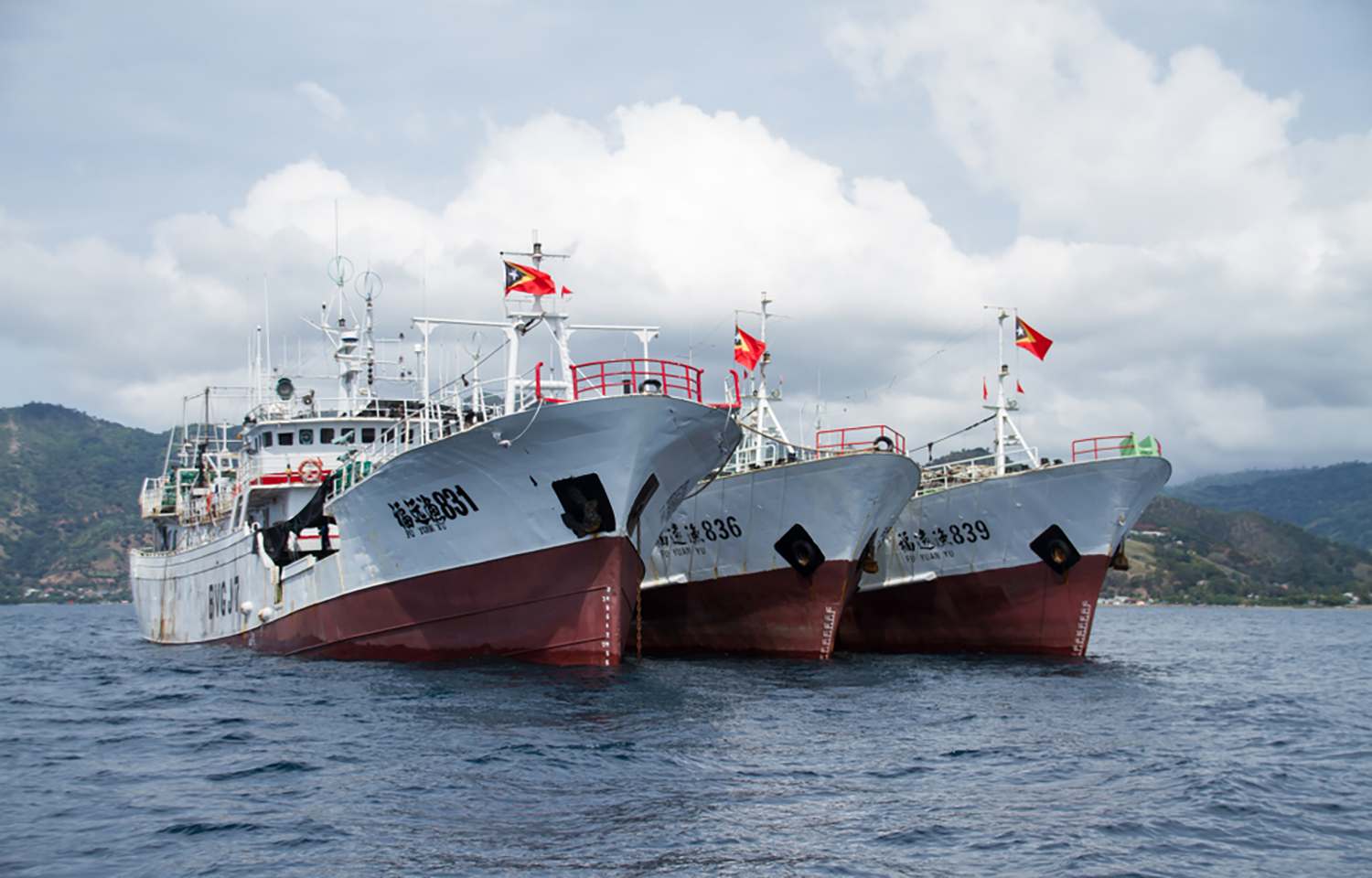As World Trade Organization (WTO) negotiations on fishing subsidies carry on at the WTO’s 13th Ministerial Conference (MC13) in Abu Dhabi, U.A.E., delegates from India have stood firm in seeking to ban subsidies that grant Chinese and E.U. fleets access to foreign waters, including barring payments to third-party governments.
Daniel Skerritt, the senior analyst for ocean conservation nonprofit Oceana, told SeafoodSource that key sticking points in the current text include prohibitions on subsidies for fishing beyond a country’s adjacent waters. Currently, the governments of China and the E.U. pay subsidies to grant their fleets access to waters in other parts of the world.
“How China and the E.U. confront this text is key, given their global, far-ranging industrial fleets,” Skerritt said.
One potential speed bump to reaching an agreement, according to Skerritt, is the language included in the current draft text, with several questions arising “regarding flexibility on the term ‘sustainability,’ whereby ‘managed’ fisheries would be exempt from subsidies disciplines.”
He said Oceana and other NGOs are pushing for language that not only clearly guarantees a country has a management framework in place “but language that demonstrates overfishing is actually not occurring, putting a stop to a potential loophole that would continue to allow subsidized overfishing.”
Outright exemptions or enforcement deadline extensions for developing WTO member nations are another major topic on the agenda at MC13. Developing nations have been divided on how long phase-in periods should last. Indian representatives, for instance, want a 25-year transition period to adapt to any new rules agreed upon in Abu Dhabi, instead of the two years originally proposed.
“Special and differential treatment for certain developing and least developed countries are rightly being negotiated for this very reason. It is important that they are time-bound and that they do not last indefinitely,” Skerritt said. “Countries should be given a sufficient time period for them to prepare for the terms of the agreement, but that should not exceed a few years. Ensuring proper allotment of special and differential treatment and that the largest subsidizers and distant-water fishing nations take most responsibility go hand-in-hand in these negotiations.”
Mohan Krishnan, the former principal scientist at the Indian Council of Agricultural Research-Central Institute of Fisheries Education in Mumbai, said Indian representatives are justified in seeking a long transition period.
“With our extensive coastline and limited trained manpower and equipment – improving all the time, no doubt – to oversee the implementation of the WTO regulations, the transition time is felt fully justified.” Krishnan told SeafoodSource. “The earnestness of India in its commitment has been amply substantiated by several institutional, technological, and legal steps taken.”
Besides a longer transition time, Krishnan said India is also demanding access rights that vessels of richer nations acquire to fish in the waters of poorer countries must be treated as a subsidy, referencing payments major fishing nations like China and the E.U. make to third countries to access their waters. Those payments have been excluded from the current talks to this point.
The WTO needs two-thirds of its 164 members to agree on the draft text for it to pass, but several Asia-Pacific countries like India, Pakistan, Bangladesh, and Vietnam have yet to sign on in an attempt to ensure the countries most responsible for harmful subsidies are held accountable and countries that have negligible distant-water fleets are not unduly punished.
Nonetheless, according to Skerritt, there is a ...








